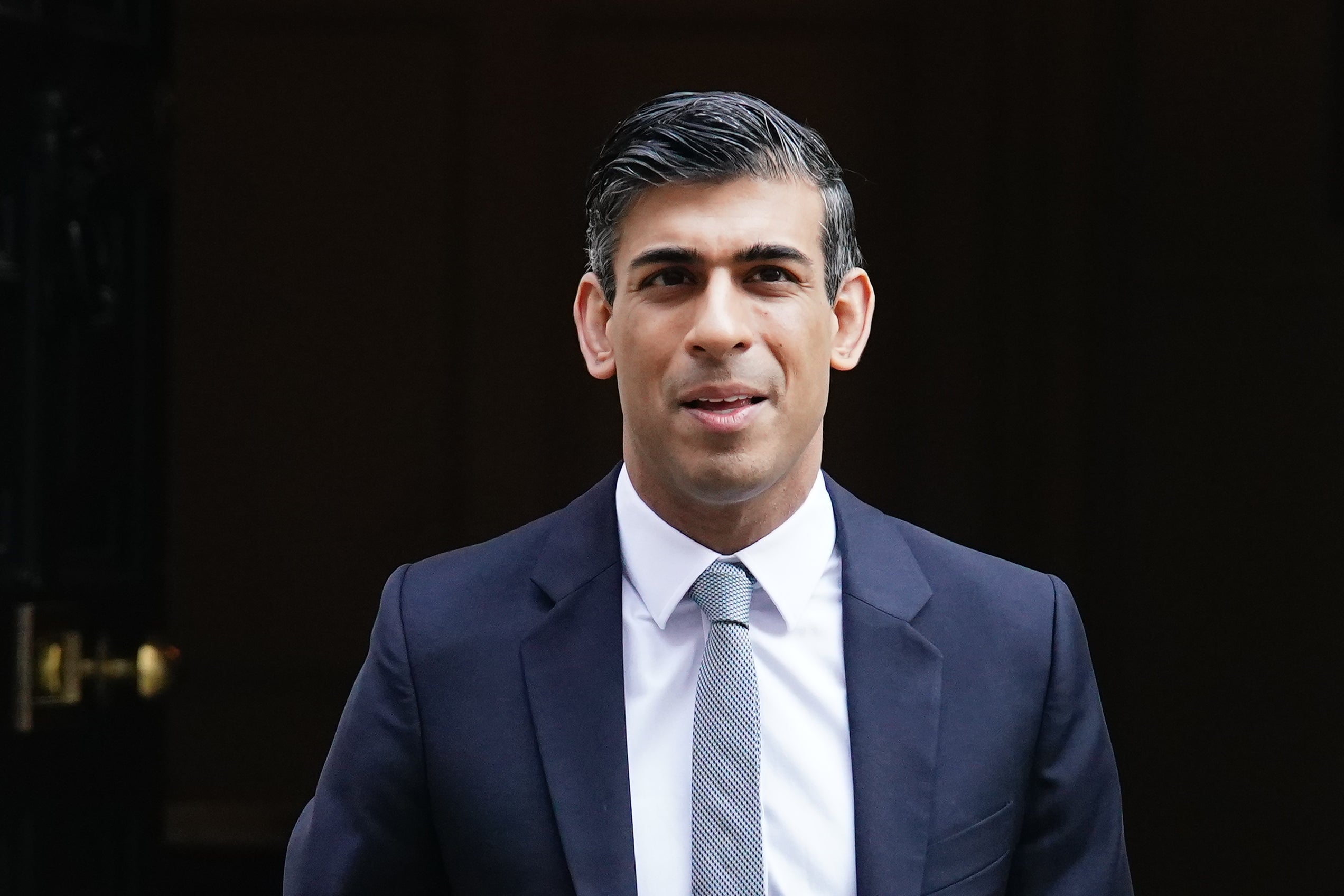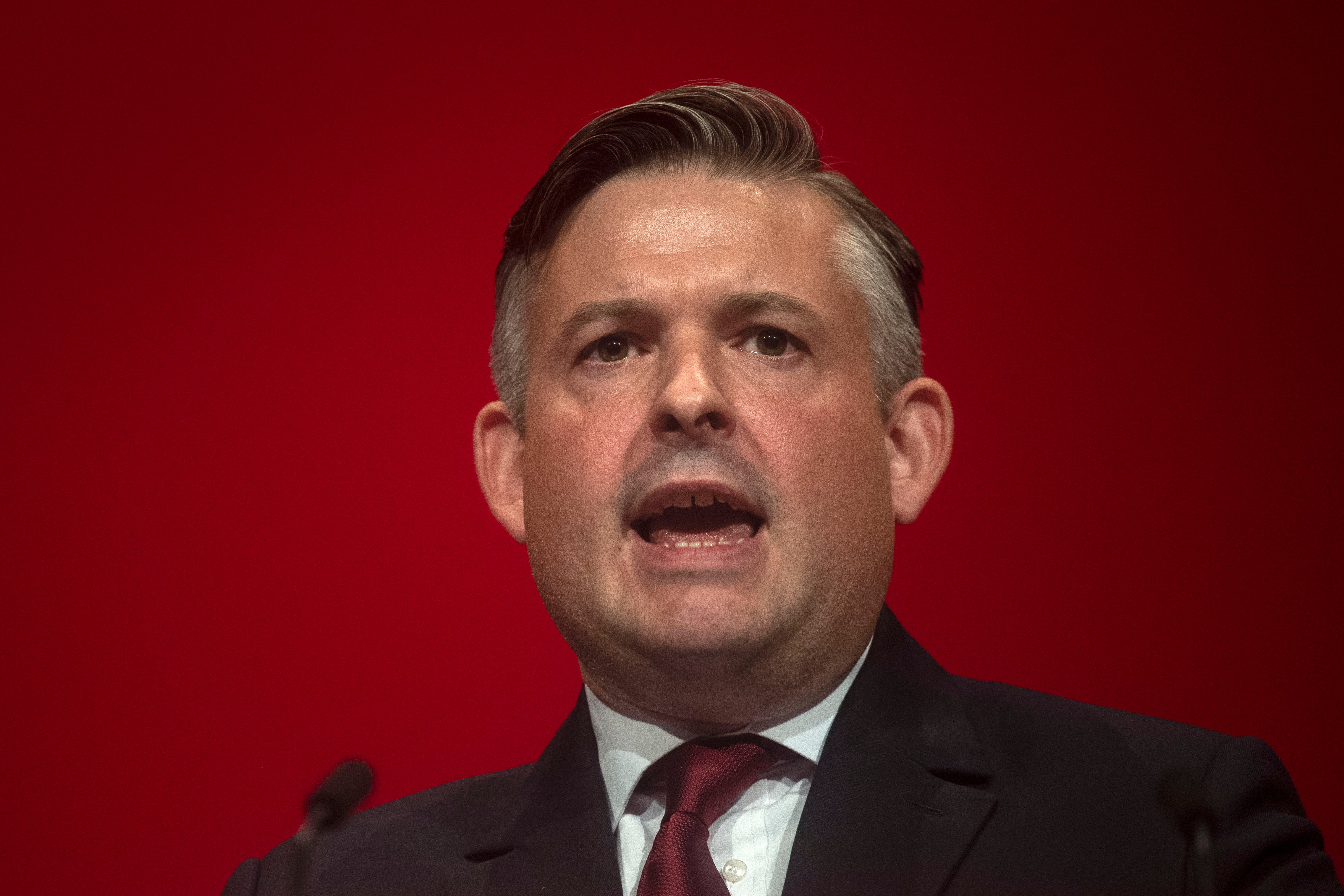Rishi Sunak is ‘Mr Tax’ and Britons are paying the price, says Labour
Jon Ashworth warns pensioners have been cutting back on hot meals and hot showers

Your support helps us to tell the story
From reproductive rights to climate change to Big Tech, The Independent is on the ground when the story is developing. Whether it's investigating the financials of Elon Musk's pro-Trump PAC or producing our latest documentary, 'The A Word', which shines a light on the American women fighting for reproductive rights, we know how important it is to parse out the facts from the messaging.
At such a critical moment in US history, we need reporters on the ground. Your donation allows us to keep sending journalists to speak to both sides of the story.
The Independent is trusted by Americans across the entire political spectrum. And unlike many other quality news outlets, we choose not to lock Americans out of our reporting and analysis with paywalls. We believe quality journalism should be available to everyone, paid for by those who can afford it.
Your support makes all the difference.Rishi Sunak has been branded “Mr Tax” by Labour as they accused him of “acting in his own interest” rather than those of Britons.
Shadow work and pensions secretary Jon Ashworth gave the nickname to Mr Sunak while warning that pensioners have been “cutting back on hot meals” and “forgoing hot showers” as they cannot afford the cost.
Mr Ashworth told Sophy Ridge On Sunday on Sky News: “Rishi Sunak absolutely had more room for manoeuvre in this spring statement and mini budget, but rather than acting in the interests of the British people, he was playing games.
He's expecting people to be grateful because two years down the road he's saying there's going to be an income tax cut even though that income tax cut nowhere near offsets the 15 tax rises that he has imposed on the British people
“He was acting in his own interest because he thinks by offering an income tax cut in two years that’ll help him politically with Conservative MPs if there’s a leadership contest or that’ll fit the Tory election grid.
“I don’t believe that putting 1.3 million people into poverty because you’re imposing a very severe real-terms cut to universal credit, you’re imposing the biggest cut to the pension in 50 years, is fair.”
The government will uprate benefits by 3.1% in April although the inflation rate is expected to average nearly 8% over the year.
Mr Ashworth said Mr Sunak should have imposed a “windfall tax” on the profits of oil and gas companies to generate funds to help struggling families and pensioners with energy bills.

He said: “He chose not to do that.
“Instead, he’s imposed these very punishing tax rises, these very severe real-terms cuts to the pension and support like universal credit, and he’s expecting people to be grateful because two years down the road he’s saying there’s going to be an income tax cut even though that income tax cut nowhere near offsets the 15 tax rises that he has imposed on the British people, £3,000 extra per household if you do a rough and ready calculation.
“He is a tax-rising Chancellor, he is Mr Tax and it’s the British people who are paying the price.”
Treasury minister Simon Clarke told MPs high inflation “will be reflected” in the benefits uprating figures for April 2023, which will be calculated in September, if the current forecasts come to fruition.
But Mr Ashworth suggested the Government should have brought forward some of the increases rather than wait until 2023.
He did not give an exact figure when repeatedly pressed on BBC’s Sunday Morning about how much Labour would have increased benefits.
Mr Ashworth said: “Rachel Reeves, ahead of the mini budget last week, said the Government should be looking at bringing forward an increase in the pension and an increase in support like universal credit.
“Rishi Sunak refused to do that. I don’t know if that’s because he’s callous or incompetent, or maybe it’s because he’s not going to honour that increase in benefits and the pension this September.”
Education secretary Nadhim Zahawi said it would be irresponsible to say “job done” by Mr Sunak over the cost-of-living crisis.
He told the same programme: “I think he will continue to keep an eye on this, it’s only right.
“It’s irresponsible for me to say ‘job done’ because energy prices are volatile, inflation remains high, so it would be absolutely irresponsible to say ‘job done’.
“But I think £22 billion, in one year, of help when you’ve just spent £400 billion is the right thing to do.”